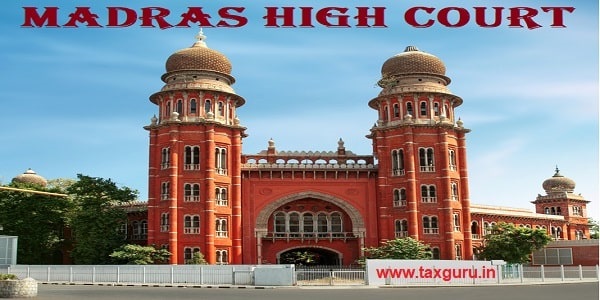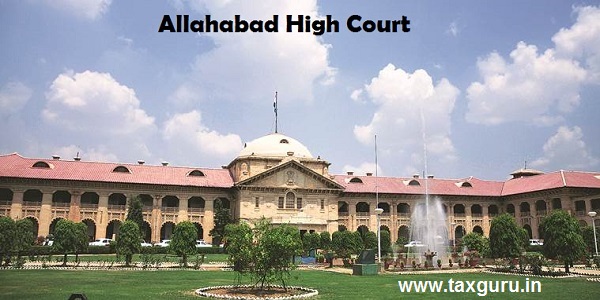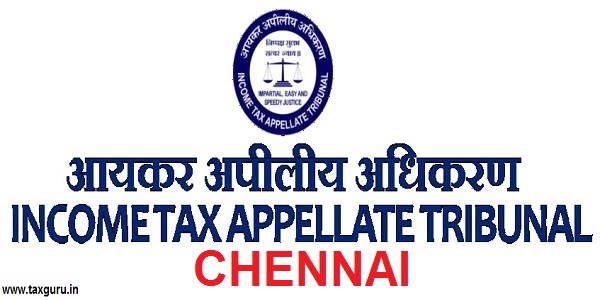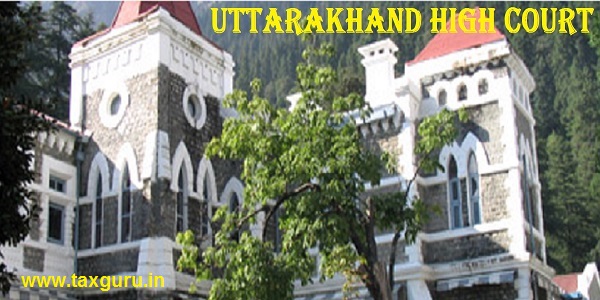Case Law Details
Hon’ble Shri Justice Sanjay K. Agrawal
Order On Board
1. The important question of law that emanates for consideration is whether the Entry Tax under the provisions of the Chhattisgarh Sthaniya Kshetra Me Mal Ke Pravesh Par Kar Adhiniyam, 1976 can be levied upon the goods brought into railway area where the petitioners are carryingon their trade and business.
2. The above-stated question of law arises for consideration on the following factual matrix: –
2.1) Petitioner No. 1 is a registered society having 15 members and other petitioners are carrying-on their business in the railway area at Bilaspur as their shops are situated within the railway area. They are carrying-on the business and registered under the Central and State Commercial Taxes Acts. They have filed this writ petition stating inter alia that they are carrying-on their business in the area which falls within the limits of railway and therefore they are exempted from payment of entry tax leviable under the Chhattisgarh Sthaniya Kshetra Me Mal Ke Pravesh Par Kar Adhiniyam, 1976 (for short ‘the Act of 1976’) by virtue of the provisions contained in sub-section (31) of Section 2 of the Railways Act, 1989, and also the provisions contained in sub-section (32 A) of Section 2 of the Railways Act, 1989, by Act 47 of 2005 with effect from 30-8-2006. Therefore, the assessment made and the entry tax imposed on the petitioners are liable to be quashed.
2.2) The State/respondents No. 1, 3 and 4 have filed return opposing the writ petition stating inter alia that by virtue of Section 3 of the Act of 1976, goods brought by any of the dealers into the local area for consumption, use or sale therein, entry tax would be chargeable. It has been stated that the taxable event will be the entry of goods into a local area which will occasion the levy of entry tax. Indirect tax is distinguishable from direct tax which is basically tax on property and income. It has also been pleaded that entry tax under the Act of 1976 would not fall within the ambit of Section 184 (1) of the Railways Act, 1989, as the words “any tax” in Section 184 of the Act of 1989 are required to be read in the context of Article 285 of the Constitution of India and are required to be understood as “any tax” on property or income as a direct tax, and as such, the writ petition deserves to be dismissed.
3. Mr. Parag Kotecha, learned counsel appearing for the petitioners, would submit that by virtue of the definitions contained in sub-sections (31) and (32 A) of Section 2 of the Railways Act, 1989, the definition of “railway” has been defined and therefore, “railway area” is not included in subsections (d) and (e) of the Act of 1976, as such, no entry tax can be charged for the goods brought into the railway area, as entry tax under Section 2(b) of the Act of 1976 can be levied upon entry of goods into the local area. Mr. Kotecha elaborating his submissions, would further submit that by virtue of Article 285 of the Constitution of India, the property of the Union is exempted from all taxes imposed by a State or by any authority within a State and there is a total restriction on imposition of tax on the sale of goods. Therefore, the writ petition deserves to be allowed and the order imposing and assessing entry tax deserves to be quashed.
4. Mr. Praful Bharat, learned Additional Advocate General appearing for the State/respondents No. 1, 3 and 4, would submit that the writ petition as framed and filed is not maintainable in law, as the order Annexure P-3 passed by the Commercial Tax Officer is an appeal able order and the order Annexure P-4 passed under the provisions of the Commercial Tax Act and the Value Added Tax Act is also appeal able or revisable and therefore the writ petition as framed and filed is not maintainable. He would further submit that Article 285 of the Constitution of India is not attracted in the facts of the case as by virtue of clause (1) of Article 285, only the property of the Union is exempted from the tax imposed by a State or by any authority within a State. Neither the petitioners are Union of India nor they are holding the property of Union of India. Tax is not being levied on the property of Union of India, tax is levied on the entry of goods into the local area by the petitioners. Even otherwise, it is an indirect tax on the goods which are being brought into the local area whereas, Article 285 of the Constitution of India is applicable to direct tax. He would also submit that Section 184(1) of the Railways Act, 1989 is also not at all attracted, as entry tax leviable under Section 3 of the Act of 1976 is upon the dealer and not upon the railway administration. Therefore, the writ petition deserves to be dismissed.
5. Mr. Abhishek Sinha, learned counsel appearing for the Union of India / respondents No. 6 and 7, would submit that in the instant case, imposition of entry tax is not on the property or land of the railways, but on the goods brought into the local area by the petitioners and in order to avoid the liability, it is for the petitioners to establish that the goods are not scheduled goods as per the Act of 1976 or there is no entry of goods into the local area as specified in the Act.
6. I have heard learned counsel for the parties and considered the rival submissions made therein and also gone through the record with utmost circumspection.
7. In order to consider the arguments raised at the Bar, it would be appropriate to notice clause (1) of Article 285 of the Constitution of India which reads as follows: –
“285. Exemption of property of the Union from State taxation.—(1) The property of the Union shall, save in so far as Parliament may by law otherwise provide, be exempt from all taxes imposed by a State or by any authority within a State.”
8. On a careful perusal of the above-stated provision, it would appear that the property of the Union is exempted from all taxes imposed by the State or by any authority within the State. It is a direct tax as Article 285 of the Constitution of India is intended to protect public revenues and Article 285 does not apply when the property that is to be taxed is not of the Union of India. (See M/s. Electronics Corporation of India Ltd. etc. etc. v. Secretary, Revenue Department, Govt. of Andhra Pradesh and others etc. etc.)
9. Submission of learned counsel for the petitioners that the petitioners are not liable for payment of entry tax is liable to be rejected as Article 285 of the Constitution of India only applies if the property is of the Union of India and the tax is directly imposed. Here, entry tax has been imposed under the Act of 1976 on the entry of goods into the local area for consumption, use or sale by the petitioners who are said to be dealers under the Act of 1976.
10. In the matter of Senior Divisional Mechanical Engineer v. State of Orissa and others, the question whether the entry tax under the Orissa Entry Tax Act, 1999 is not a tax directly imposed on the income or property of the Union of India came to be considered by the Supreme Court in which it has been held that the mandate under Article 285 of the Constitution of India does not extend to the taxes leviable for entry of goods into the local area and entry tax cannot be called as a tax directly imposed upon the income or property of the Union as taxable event under the Orissa Entry Tax Act, 1999 is on the entry of scheduled goods into the local area and not on the goods itself. The Supreme Court reiterating the earlier judgement rendered in the Presidential Reference and further relying upon the decision rendered in the case of N.D.M.C. v. State of Punjab and others has categorically held that there is a difference between direct tax on property and on income as against indirect tax on manufacture of goods or entry of goods into the local area or sales tax and observed as under: –
“The above extract is taken from the judgement of this Court reported in (1964 (3) SCR 787) (supra) which has been re-iterated in the judgement of the Constitution Bench of this Court in the case of N.D.M.C. Vs. State of Punjab & Others (1997 (7) SCC 339) (paras 147, 153, 163 and 179). It may be re-iterated in subsequent judgements too wherein the same view is taken but we do not wish to burden our present judgement with subsequent judgements.
Suffice it to state that there is a difference between direct tax on property and on income as against indirect tax on manufacture of goods or entry of goods into the local area or sales tax. This dichotomy needs to be kept in mind of Constitutional Scheme and Article 285 and 289 of the Constitution.
In our view, the afore-stated judgement of this Court in Presidential Reference and in NDMC’s Case (supra) squarely applies to the facts of the present case. Therefore, we see no reason to interfere with the impugned judgement of the Orissa High Court on this aspect.”
Thus, the above-stated judgement rendered in Senior Divisional Mechanical Engineer (supra) squarely applies to the facts of the case and the entry tax not being the direct tax, the petitioner’s submission in that regard deserves to be rejected.
11. Determination of the aforesaid question takes me to advert to the submission raised by Mr. Parag Kotecha based on Section 184(1) of the Railways Act, 1989. He submits that by virtue of the provisions contained in sub-section (1) of Section 184 of the Railways Act, 1989, the petitioners who are carrying-on their business and trade in the railway area are not subjected to any tax. On the contrary, Mr. Praful Bharat, learned Additional Advocate General, would submit that Section 184(1) of the Act of 1989 is meant for railway administration and Section 184(1) of the Railways Act, 1989 is not applicable to the petitioners. Mr. Bharat would further submit that applicability of Section 184 of the Railways Act, 1989 to the railway administration has even been considered by the Supreme Court in Senior Divisional Mechanical Engineer (supra) and applicability of Section 184(1) of the Railways Act, 1989 in the light of Section 3 of the Orissa Entry Tax Act, 1999 which is pari materia to Section 3 of the Act of 1976, has been answered by holding that the words “any tax” in Section 184 of the Railways Act, 1989 is required to be read in the context of Article 285 of the Constitution and is required to be understood as “any tax” on property or income as a direct tax, and observed as under: –
“A bare reading of these two provisions quoted above, indicates the difference between the charge ability on one hand and collection and distribution of tax on the other hand. On reading the provisions of 1999 Act it is clear that Octroi Duty was levied by the Municipalities under the local enactments. In the present cases that local enactment was Orissa Municipal Act (vide Section 131(kk)). That sub-section (kk) clearly indicate that Octroi Duty was duty on the goods brought within the limits of Municipal area for consumption, use or sale therein. Section 131 of the Orissa Municipal Act, 1950 refers to the power of the Municipality to impose taxes including Octroi Duty on the goods brought within the limits of the Municipal area. The significant thing to be noted is that Octroi Duty could fall within the ambit of Section 184(1) as a tax in aid of the funds of any local authority which will not apply to the tax of Entry Tax leviable under Section 3(1) of the said 1999 Act which tax is imposed and collected by the State Government. Lastly, the words “any tax” in Section 184 of the Railways Act is required to be read in the context of Article 285 of the Constitution and is required to be understood as “any tax” on property or income as a direct tax.”
12. Thus, the second submission raised by learned counsel for the petitioners is squarely covered against the petitioners by the decision of the Supreme Court in the above-stated cases particularly in Senior Divisional Mechanical Engineer (supra) and it cannot be held that the petitioners are exempted from payment of entry tax by virtue of the provisions contained in sub-section (1) of Section 184 of the Railways Act, 1989.
13. No other point was raised.
14. As a fallout and consequence of aforesaid discussion, the writ petition deserves to be and is hereby dismissed. However, dismissal of the writ petition would not bar the petitioners to avail the statutory alternative remedy, if any, available under the law. No order as to cost(s).



























